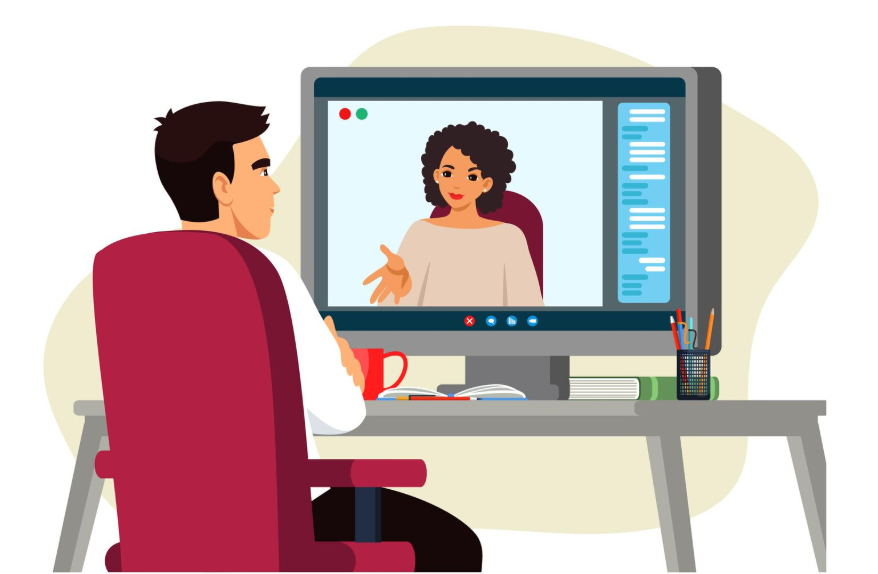
Job interviews can be nerve-wracking, even for those with years of experience. You have to think on your feet, answer tricky questions, and present yourself confidently, all while knowing that one mistake might cost you the opportunity. This is where technology is stepping in to make the process less daunting.
An AI mock job interview simulator is designed to help job seekers practise and improve their interview skills in a realistic yet low-pressure environment. With features like AI interview practice, candidates can get personalised feedback, identify weak points, and refine their answers before facing an actual employer. By simulating the kinds of questions and interactions you might face in a real interview, these tools can boost your confidence and improve your chances of getting hired.
What Is an AI Mock Job Interview Simulator?
An AI mock job interview simulator is an online platform or software that uses artificial intelligence to replicate a real job interview. Instead of practising with a friend or reading from a script, you interact with a virtual interviewer that can ask questions, analyse your responses, and provide feedback.
Some simulators focus on voice-based interviews, where you answer aloud as you would in person or a video call. Others are text-based, ideal for roles where written communication is key. Many advanced platforms now combine both, with AI analysing your words, tone, pace, and even body language if you are on camera.
How It Works
When you use an AI interview simulator, the process typically starts with selecting the type of job or industry you are applying for. The system then pulls from a database of common and role-specific interview questions, ranging from behavioural to technical.
For example, if you are applying for a marketing role, you might be asked:
“Can you tell me about a successful campaign you worked on and your role in it?”
The AI listens to or reads your answer, then uses natural language processing to assess your response. It might score you on clarity, relevance, and structure, as well as provide suggestions on how to improve. Some simulators even measure your speaking pace, filler word usage, and confidence level.
Why Practising with AI Can Be Effective
Practising with AI offers benefits that traditional methods sometimes cannot match. Unlike a human friend who might run out of questions or feel uncomfortable giving direct criticism, AI can be consistent, objective, and endlessly patient.
You can repeat the same question multiple times until you are satisfied with your answer, or you can try different approaches to see which works best. The AI can point out patterns you might not notice yourself, such as speaking too quickly, not providing enough detail, or drifting off-topic.
Customisation and Role-Specific Preparation
One of the strengths of AI interview simulators is their ability to tailor questions and scenarios to the specific role you are targeting. Whether you are preparing for a software engineering role, a sales position, or a managerial interview, the simulator can adjust to ask the right mix of behavioural, situational, and technical questions.
This targeted approach ensures your practice sessions are directly relevant to the job you want, making you better prepared when the real interview comes around.
Reducing Anxiety Before the Real Interview
For many people, interview nerves are a bigger obstacle than a lack of knowledge. The more you practise, the more natural and confident you will feel. AI simulators let you rehearse as many times as you like without fear of judgment.
Because the environment is simulated, mistakes do not carry any real-world consequences. Instead, they become learning opportunities. Over time, your ability to think clearly under pressure improves, making it easier to handle the unpredictable nature of live interviews.
Limitations to Keep in Mind
While AI mock job interview simulators can be incredibly useful, they are not a complete replacement for human interaction. Real interviewers may react emotionally, change their tone based on your answers, or ask follow-up questions that the AI has not been trained for.
It is also worth noting that AI feedback is based on algorithms and data patterns, so it might not fully capture the subtleties of cultural fit, personality, or creativity, factors that often matter to employers.
For best results, AI practice should be combined with real-life mock interviews with mentors, career coaches, or peers. This way, you get both the structured, data-driven feedback from AI and the human insight that a computer cannot fully replicate.
Choosing the Right AI Interview Simulator
If you are considering using one of these tools, look for features that match your needs. Some platforms offer industry-specific question sets, while others focus on behavioural interview techniques like the STAR method (Situation, Task, Action, Result).
Also, check whether the simulator provides detailed performance reports, tracks your improvement over time, and works across multiple devices. A good platform will let you practise both in short sessions and in full-length interviews so you can prepare for different formats.
Final Thoughts
An AI mock job interview simulator can be a valuable part of your job search preparation. It gives you a safe space to practise, highlights areas for improvement, and builds the confidence you need to perform well when it counts.
While it is not a magic solution that guarantees you will get the job, it can help you avoid common mistakes and present yourself in the best possible light. Paired with real-world practice and thorough research into your potential employer, it can be one of the most effective tools in your career toolkit.













